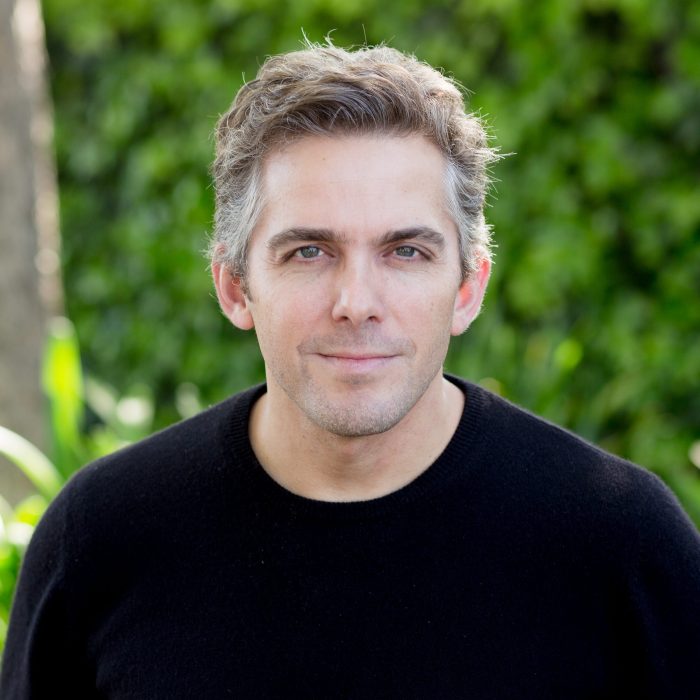Member Profile: Elliott Grant, CEO Mineral (an Alphabet company)

Elliott Grant is an entrepreneurial leader focused on tackling ‘wicked hard’ problems with elegant solutions, and building teams that are enduring, impactful, and positive.
He has 20+ years experience innovating in agtech, foodtech, food safety, nutrition, supply chain, traceability, authentication, cryptography, ML … and plastic.
We talked to Elliott about his journey from anticounterfeiting technology for semi-conductors into becoming an industry leader in Food and AgTech.
The Beginnings
Elliott grew up in London and read engineering at Cambridge, staying a few extra years to do a PhD in manufacturing engineering. His proudest achievement? Probably being captain of the Varsity Fencing team the year Cambridge finally beat Oxford – breaking a 7-year dry spell.
After a 5-year peripatetic stint at McKinsey (SYD, NY, and SF), Elliott married and settled in the Bay Area. One of the questions he most enjoyed exploring at McKinsey was how innovation happens – and it’s been a constant source of curiosity during his career. For example, while Elliott was responsible for factories making billions of plastic bottle tops, he started looking for a novel way to detect counterfeit products. That launched him on a quixotic effort to blend manufacturing with cryptography and cell phone cameras (this was back in 2006 – and cell phone cameras were a novelty). As with any post-rationalized founding story – Elliott claims – success mostly came by accident and serendipity. In trying to build an anticounterfeiting technology for the semiconductor industry, they ended up solving a problem for the food industry instead. That company ultimately became the world’s leading food traceability provider (HarvestMark) and by the time it was acquired, Elliott had become deeply intrigued by food and agriculture. Elliott joined the board of the Produce Marketing Association, and led a task force to develop a standard for industry-wide traceability (look for the labels on every carton of produce next time you’re in Costco!).
Elliott’s next gig was as CEO of a personalized nutrition company – ShopWell – that aimed to help us all make better choices at the grocery store. After selling that company, an old friend working at Google’s X division (and GBx-er, Julian Green) called. He said they were looking for someone to lead an agriculture project, and perhaps Elliott would be interested.
X, The Moonshot Factory
X is famously secretive. In fact, during the interview process they wouldn’t tell Elliott any details about the project for which he was being interviewed. It didn’t matter – having studied legendary innovation labs like Lockheed’s Skunk Works, Xerox PARC and AT&T’s Bell Labs – X was exactly the place he wanted to work. X’s secrecy isn’t primarily to stop people copying its ideas – it’s to create an environment in which employees can try things without worrying that a failure will become a public embarrassment. X blends diverse technical disciplines with just the right amount of chaos and serendipity to stimulate breakthrough ideas – confined by a light touch process that filters out most ideas while incubating those that could become meaningfully impactful. Elliott had the opportunity to shepherd a project from inception all the way through to graduation into an Alphabet company focused on applying AI to the challenges of sustainable agriculture: Mineral.
The Future: AI & Agriculture
Elliott has dedicated his career to bringing innovations into food and agriculture, out of a sincere belief in the importance and impact of this industry on the health of the planet and everyone on it. There are few other industries that each of us interacts with multiple times a day. Food production has an outsized environmental impact. Food is being majorly affected by climate change, and must dramatically increase productivity to feed a growing population without further degrading precious resources like soil, water, biodiversity and forests. Elliott has also found the people who work in food production to be earnest and passionate about their work and contribution – and they often choose to stay in the industry for their whole careers.
The intersection of AI and agriculture, is an area that Elliott is particularly interested in. The complexity and diversity of food production lends itself especially well to the strengths of AI. He’s excited to see what will happen over the next few years in domains like robotics and autonomy, genomic prediction, and AI-powered advisors and helpers.
In Elliott’s view, the great uncertainties facing founders in AI are: the breakneck pace of improvement of AI models, the monetisation of the business, and the availability of high quality, diverse, unique training data. That’s coupled with the still-to-be-determined challenges of privacy, ethics, and regulation.
Parting Book Recommendations
There are a few business books I dip back into. My favorite is “Co-Opetition” by Brandenburger and Nalebuff – it’s about game theory, but uses relatable stories (not lots of equations) to explain it. “The Innovator’s Dilemma” by Clayton Christensen is another that has influenced my thinking, and that I re-read occasionally.
Edited by Chiara Benn

